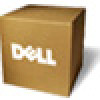Dell PowerConnect W-Airwave W-Airwave 7.2 Configuration Guide - Page 91
Metric Algorithm, Transmit Power
 |
View all Dell PowerConnect W-Airwave manuals
Add to My Manuals
Save this manual to your list of manuals |
Page 91 highlights
Table 35 Profiles > Mesh > Radio Profile Settings (Continued) Field Default Description Reselection Mode Metric Algorithm 802.11g Portal Channel (1-14) 802.11a Portal Channel (34-165) startupsubthreshold Use this setting to optimize operation of the link metric algorithm. Specifies the method a mesh node uses to find a better uplink to create a path to the mesh portal. Only neighbors on the same channel in the same mesh cluster are considered. Available options are: reselect-anytime-Connected mesh nodes evaluate mesh links every 30 seconds. If a mesh node finds a better uplink, the mesh node connects to the new parent to create an improved path to the mesh portal. reselect-never-Connected mesh nodes do not evaluate other mesh links to create an improved path to the mesh portal. startup-subthreshold-When bringing up the mesh network, mesh nodes have 3 minutes to find a better uplink. After that time, each mesh node evaluates alternative links only if the existing uplink falls below the configured threshold level (the link becomes a sub-threshold link). The reselection process is cancelled if the average RSSI on the existing uplink rises above the configured link-threshold. subthreshold-only-Connected mesh nodes evaluate alternative links only if the existing uplink becomes a sub-threshold link. NOTE: AirWave recommends using the default value. distributed-treerssi Use this setting to optimize operation of the link metric algorithm. Specifies the algorithm used by a mesh node to select its parent. Available options are: best-link-rssi-Selects the parent with the strongest RSSI, regardless of the number of children a potential parent has. distributed-tree-rssi-Selects the parent based on link-RSSI and node cost based on the number of children. This option evenly distributes the mesh points over high quality uplinks. Low quality uplinks are selected as a last resort. NOTE: AirWave recommends using the default value. Blank Blank Each 802.11a and 802.11g radio profile references an Adaptive Radio Management (ARM) profile. When you assign an active ARM profile to a mesh radio, ARM's automatic power-assignment and channel-assignment features automatically select the radio channel with the least amount of interference for each mesh portal, maximizing end user performance. In earlier versions of this software, an AP with a mesh radio received its beacon period, transmission power and 11a/11g portal channel settings from its mesh radio profile. Mesh-access AP portals now inherit these radio settings from their dot11a or dot11g radio profiles. NOTE: Do not delete or modify mesh cluster profiles once you use them to provision mesh nodes. You can recover the mesh point if the original cluster profile is still available. Dell PowerConnect W recommends creating a new mesh cluster profile if needed. Beacon Period 100 (60-999999 msec) Define the beacon period supporting mesh profiles, as described for the fields immediately above. Transmit Power 30 (0-30 dBm) Define the transmission power supporting mesh profiles, as described for the portal channel settings immediately above. This setting supports a range from 0 to 30 dBm. Retry Limit (0-15) 4 Indicate the number of times a mesh node can re-send a packet. This setting supports a range from 0 to 15. RTS Threshold (256-2346 bytes) 802.11a Transmit Rates 2333 All selected Define the packet size sent by mesh nodes. Mesh nodes transmitting frames larger than this threshold must issue request to send (RTS) and wait for other mesh nodes to respond with clear to send (CTS) to begin transmission. This helps prevent mid-air collisions. The supported range is from 256 to 2346 bytes. Indicate the transmit rates for the 802.11a radio. The AP attempts to use the highest transmission rate to establish a mesh link. If a rate is unavailable, the AP goes through the list and uses the next highest rate. Dell PowerConnect W AirWave 7.2 | Configuration Guide Dell PowerConnect W Configuration Reference | 91















